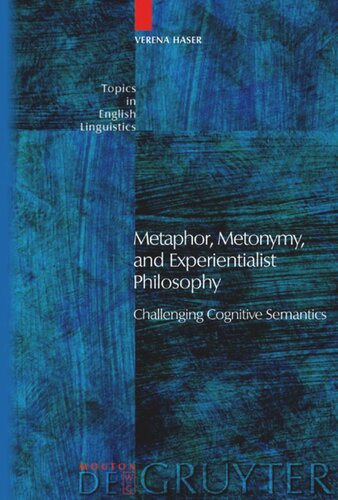

Most ebook files are in PDF format, so you can easily read them using various software such as Foxit Reader or directly on the Google Chrome browser.
Some ebook files are released by publishers in other formats such as .awz, .mobi, .epub, .fb2, etc. You may need to install specific software to read these formats on mobile/PC, such as Calibre.
Please read the tutorial at this link: https://ebookbell.com/faq
We offer FREE conversion to the popular formats you request; however, this may take some time. Therefore, right after payment, please email us, and we will try to provide the service as quickly as possible.
For some exceptional file formats or broken links (if any), please refrain from opening any disputes. Instead, email us first, and we will try to assist within a maximum of 6 hours.
EbookBell Team

5.0
70 reviewsThe present book provides a detailed criticism of experientialist semantics, focusing both on philosophical issues connected with experientialism and on cognitive approaches to metaphor and metonymy. Particular emphasis is placed on the works of George Lakoff and Mark Johnson, but other cognitivists are also taken into consideration.
Verena Haser proposes a new approach to the distinction between metaphor and metonymy, which contrasts with familiar cognitivist models, but also builds on some insights gained in cognitivist research. She also offers an account of metaphorical transfer which dispenses with the notion of conceptual metaphors in the sense of Lakoff and Johnson. She argues that conceptual metaphors are not a useful construct for explaining metaphorical transfer, and that the clustering of metaphorical expressions is better accounted for in terms of family resemblances between metaphorical expressions. Another major goal of this work is a reassessment of the relationship between experientialism and traditional Western philosophy (often subsumed under the vague term "objectivism").
This book contrasts with most other critical approaches to experientialism by providing close readings of key passages from the works of Lakoff and Johnson, which enables the author to pinpoint theory-internal inconsistencies and other shortcomings not noted in previous publications.
This book will be relevant to students and scholars interested in semantics and cognitive linguistics, and also in psychology and philosophy of language.